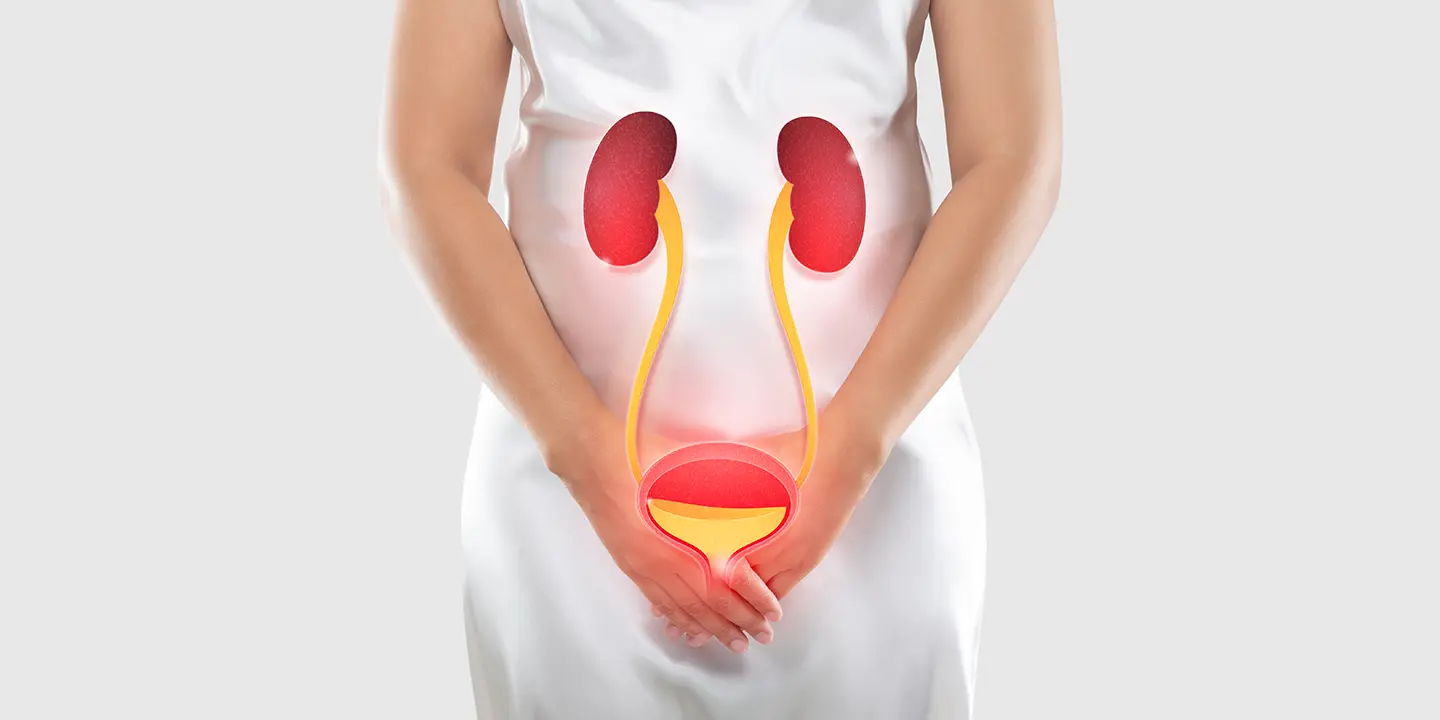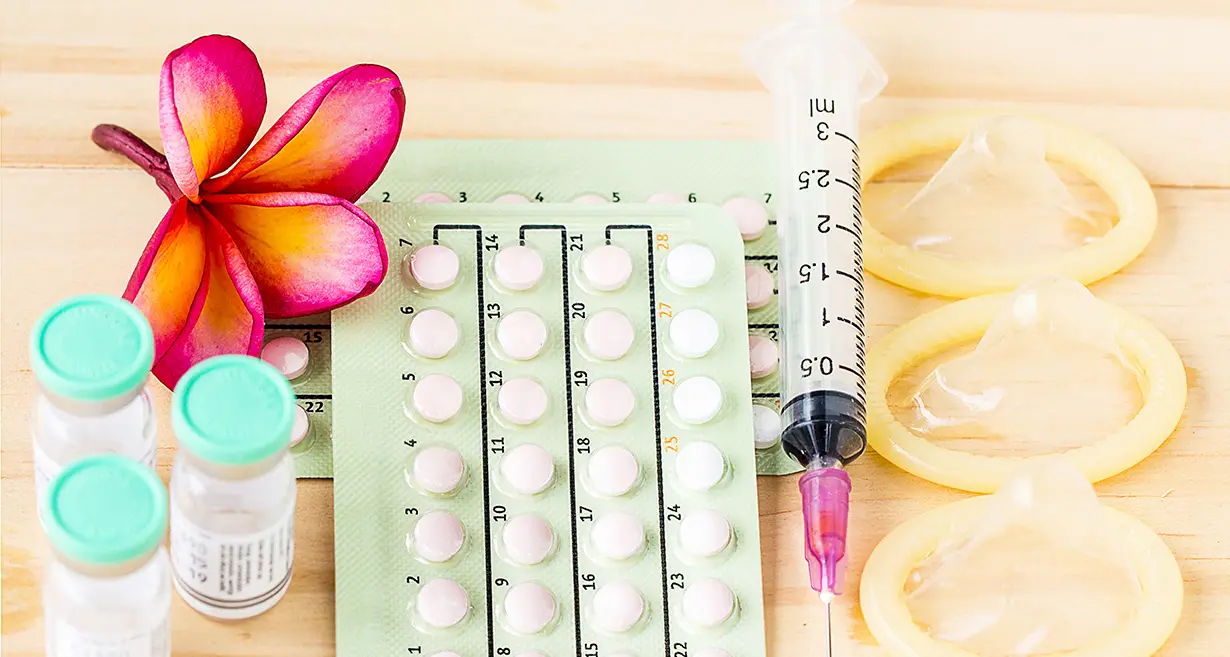
- January 17, 2023
- Queens
- 0
Risk content: Heavy bleeding periods are a common condition and sometimes confusing for women to judge the real cause and what should be done to deal with it. In common language, if bleeding lasts for more than seven days and involves excessive blood flow, then it is menorrhagia. However, it is confusing to classify if your periods are normal or heavy in comparison to other women. Some feel they have heavy periods and have average blood loss in real life. While there may be some who think they have normal periods but actually have severe blood loss. Talking to the best gynecologist about the problem and reason for heavy bleeding during periods is better. You must discuss this problem if you experience disruption to daily activities because of heavy flow. If you cannot maintain your daily activities when you have periods because you have a lot of blood loss, then it is best to discuss it with the doctor. Book an appointment at Queen’s Gynecology, the best clinic in Delhi, working to treat almost all gynecological conditions.
In this Article
- 1 Menorrhagia – a common concern nowadays
- 2 Menorrhagia causes – to be kept in mind.
- 3 Menorrhagia – risk factors for developing
- 4 Reducing the risk of menorrhagia
- 5 Menorrhagia symptoms – should not be ignored.
- 6 Menorrhagia – linked complications
- 7 Menorrhagia diagnosis – a visit to the best gynecologist
- 8 Menorrhagia treatment – needs the best gynecologist
- 9 How Queen’s gynecology can help you with heavy periods?
- 10 Conclusion
Menorrhagia – a common concern nowadays
Many women experience heavy periods, and they find it normal. It is vital for them to know the exact menorrhagia to understand the problem well. Heavy menstrual bleeding is a common concern nowadays and is termed menorrhagia, which is described as prolonged menstrual periods. Nowadays, it is a very common issue among adolescents who still don’t know what a normal menstrual cycle is. The heavy menstrual period can interfere with normal activities and cause anemia as well. Thus if your teen is experiencing a heavy bleeding period, you should take her for examination by the best gynecologist. The condition may be temporary or permanent; however, there are many treatments for the condition as well. There are no proven risk factors for developing the condition if you do not have any menorrhagia causes. . Both young and older women of reproductive age can experience it, and the reasons usually vary. Younger women are more prone to have excessive bleeding from hormone-related causes, and Older women can have uterine-related causes, such as fibroids, during their reproductive years.
Menorrhagia causes – to be kept in mind.
Heavy bleeding is a most common gynecological complaint and affects those who menstruate and have not reached menopause. Women must know that average blood loss during periods is about two to three tablespoons or 30 to 45 milliliters over four to five days. You will need menorrhagia treatment if you experience bleeding for more than seven days and soak more than one or two sanitary pads or tampons in one hour. Also, if you experience heavy periods with blood clots, then it is time to visit the best gynecologist to discuss the condition.
Heavy menstrual periods are experienced by women because of many reasons; let us discuss them:
- Uterine fibroids
It is one of the primary menorrhagia causes and is a non-cancerous tumor that grows either inside or outside the uterine wall. There are other benign growths as well that can cause the problem as well.
- Uterine polyps
It is among the common causes and overgrowths of endometrial tissue that lines the inside of the uterus.
- Hormonal imbalances
It can cause irregular ovulation and the uterus lining to become weak. Then it sheds during periods, and heavy bleeding occurs. It develops during puberty and perimenopause. Conditions like anovulation, thyroid diseases, and PCOS can also lead to menorrhagia.
- Adenomyosis
In this condition, the tissue from the uterus lining becomes embedded in the muscle and causes heavy bleeding period and pain.
- Non Hormonal intrauterine device
It is a type of birth control device placed in the uterus and can cause heavy bleeding.
- Pregnancy-related complications
Some pregnancy-related issues like ectopic pregnancy, miscarriage, and C-section niche can cause heavy bleeding.
- Cancer
Ovary, cervical, or uterus cancer can affect the reproductive system and lead to heavy periods.
- Infections
Some infections that also include sexually transmitted diseases can also cause heavy menstrual bleeding problems. These STIs are trichomoniasis, gonorrhea, chlamydia, and chronic endometritis.
- Other medical conditions
Other medical conditions are also the reason for heavy bleeding during periods. Conditions like Von Willebrand disease, Liver disease, kidney disease, PCOS, PID, and leukemia can also lead to menorrhagia.
Menorrhagia – risk factors for developing
Risk factors for developing menorrhagia vary with age and depend upon whether a person has other medical conditions. In a normal menstrual cycle, the egg release from the ovaries stimulates the body’s progesterone production, and the female hormone is liable for keeping periods regular. When no egg is released, there is insufficient progesterone which leads to heavy menstrual bleeding. Menorrhagia, specifically in adolescent girls, is because of anovulation and thus is more prone to anovulatory cycles in the first year after their initial period cycle. In older reproductive-age women the condition is caused by uterine pathology comprising fibroids, polyps, and adenomyosis.
Some most common risk factors for developing menorrhagia are:
- Pregnancy
- Pelvic pain
- Pelvic diseases
- Endometriosis
- STIs
- Anovulatory conditions
- Hormonal imbalances
- Chronic illness of diabetes or kidney
- Hormones treatments
Reducing the risk of menorrhagia
Heavy menstrual flow is medically termed as menorrhagia. Women with menorrhagia have to change their pads or tampons every hour f. They can also experience blood clots the size of a quarter or larger that may regularly appear in the menstrual flow. It is not always possible to manage or else avoid menorrhagia because the cause is not always clear. Some home remedies can help reduce the symptoms of bleeding and effectively manage them.
Doctors may recommend medication or surgery for some who experience heavy periods with clots. You can lower your risk by
- Getting a regular physical exercise routine
- By Maintaining a healthy body weight
- By Treating medical conditions that can lead to excessive bleeding
Anyone who has menorrhagia and experiences heavy bleeding periods should see a gynecologist. Menorrhagia means periods that last longer than a week and periods that completely soak a pad or tampon every hour. The doctor will ask about your general and menstrual health, and they may order additional tests to diagnose any underlying issues that worsen the causes. Many menorrhagia treatments are available when a health condition is responsible for heavy periods. Even if you can manage heavy flow, it is still best to consult the best gynecologist in Delhi, who will investigate and identify any underlying issues. It will help to reduce the intensity and duration of the flow effectively.
Menorrhagia symptoms – should not be ignored.
Menorrhagia is a common condition that causes abnormal and continuous menstrual bleeding for months. It affects 1 in every 20 females; however, excessive bleeding is common; it is vital to know the menorrhagia symptoms and to consult the best gynecologist if you are experiencing them. Your visit to the doctor will prevent you from developing anemia and disrupting your day-to-day activities. Many women with heavy bleeding periods struggle with everyday activities and can experience disrupted sleep. There are several effective treatments for menorrhagia.
Below are some common symptoms that you must not ignore:
- Soaking pads or tampons within an hour for many continuous hours.
- Have to wake up at night to change the pad or tampon.
- Need to wear double protection to control the heavy flow
- Heavy periods with blood clots
- Bleeding heavily for more than seven days
- Experiencing anemia symptoms like muscle weakness, shortness of breath, and fatigue.
Menorrhagia – linked complications
Menorrhagia means heavy menstrual bleeding, defined as soaking one or more tampons or pads or tampons every hour or using double protection, waking up at night to change pads, bleeding for more than seven days, or having to restrict your activities because of your menstrual flow. Excessive or untreated heavy bleeding can lead to many other medical conditions. If you have any underlying health condition that causes your heavy periods, you may experience complications linked to it. However, heavy bleeding itself can lead to many health complications. A person can develop anemia due to blood loss, leaving them exhausted, weak, and pale. Also, heavy periods are often associated with painful camping that can disrupt your life by making it difficult to perform your usual activities. If left untreated, chronic menorrhagia can lead to anemia and intolerable pain. Anemia will show symptoms like weakness, fatigue, chest pain, and shortness of breath. If you experience severe pain with menorrhagia, you must visit a gynecologist for a medical evaluation and treatment.
Menorrhagia diagnosis – a visit to the best gynecologist
To diagnose the leading cause of menorrhagia, you need to note the above-listed symptoms and visit the best gynecologist to seek help. They will ask about your menstrual and health history, including any contraceptives used. The doctor may also ask you to keep track of your periods and keep a note of many points like the severity of flow per day, clotting, and cramping.
If, in cases, there is a need to determine the underlying cause gynecologist will prescribe some tests to know it well; the test may include:
- Some blood tests are prescribed to gather information about your hormonal levels, iron deficiency, and thyroid function. They are used to determine the inherent problem with pregnancy or clotting.
- Transvaginal ultrasound is another test that is used to look for polyps, fibroids, and malignant lesions.
- Pap tests help doctors identify cervical changes, including inflammation, infection, and cancer.
- MRI is done to check for abnormal structures inside your uterus.
- Endometrial biopsy is done to prevent abnormal tissues or cancer in the uterine lining.
- Expert doctors will perform a laparoscopy to analyze the uterine lining and cavity.
- A liver function test is done if any liver disease is suspected.
- A kidney test is done if any kidney disease is suspected.
Menorrhagia treatment – needs the best gynecologist
Doctors can finalize the diagnosis of menorrhagia only after discussing all other menstrual disorders, medical conditions, and medications that could cause the condition. Menorrhagia treatment depends upon the cause of the condition,
- The severity of your bleeding
- Overall health
- Medical condition
- Your response to certain medications
- Your preferences
It is better to talk to your gynecologist to discuss all your health-related concerns and your goals for treatment. Some treatment options are :
- Medications
Your gynecologist may prescribe you certain medications to treat heavy-period bleeding. They can prescribe iron supplements, NSAIDs to control cramps and reduce bleeding, Birth control pills to help make periods regular, and hormone therapy may also be given to balancing the estrogen and progesterone to ease the menstrual flow. Doctors may also prescribe antifibrinolytic medicines to control the heavy periods with blood clots.
- Procedures to treat heavy bleeding
There are also many procedures to diagnose menorrhagia causes and treat heavy period bleeding. The best gynecologist in Delhi treats the condition with operative hysteroscopy. They will insert a thin, lighted tube into the vagina to determine your uterine cavity. The instrument will act as a surgical treatment and can also help to remove any growths that may cause heavy bleeding.
- Myomectomy
It is another procedure done to remove fibroids from the uterus.
- Uterine embolization
It is a process that restricts the blood flow from tumors and fibroids.
- Endometrial ablation
It is the process that is done to destroy all or a portion of the lining of your uterus.
- Hysterectomy
It is a procedure to surgically remove your uterus and prevent you from having heavy periods or getting pregnant.
How Queen’s gynecology can help you with heavy periods?
Heavy bleeding periods are indeed common, but it doesn’t mean you have to learn to live with them. Managing your blood flow is a vital part of getting healthier emotionally and physically; thus, it is best to speak with the best gynecologist. Heavy periods aren’t usually life-threatening but can lead to many health conditions like anemia if you lose too much blood. Queen’s Gynecology has an experienced team of qualified gynecologists who will help you in treating several issues related to irregular periods. The best gynecologist here works to provide women with a quick and comprehensive diagnosis and tailored treatment for a speedy recovery. The platform addresses concerns related to the gynecological as well as sexual well-being of women.
Yes, it is normal to have heavy periods. But if your periods last for more than a week with a heavy, consistent flow, you might have menorrhagia. If you think you might be suffering from it, this is the right time to talk to the gynecologist to get to know all the details.
It is best to visit a gynecologist to know and understand the menorrhagia causes and to get treated. Your treatment will depend upon your medical history and will be specific to your condition.
Untreated continuous menstrual bleeding for months can stop you from living tension-free and cause anemia, leading to tiredness and weakness.
If a woman loses about 80 milliliters of blood during one menstrual period, it is considered a heavy bleeding period and should be treated as soon as possible.
Yes, mental stress is among the causes of menorrhagia. It leads to changes in menstrual cycles that range from skipped or irregular periods to heavy periods.
Drinking water and consuming water-rich fruits and veggies is one of the best to do during periods. Try to choose healthier foods to make your periods regular.
If your heavy bleeding is due to your diet or medications, then doing changes that can stop it from continuing. However, the condition can also signify any underlying health complication that needs to be treated to improve symptoms.
You can have lean meat, a great source of iron and protein, as it is best for heavy periods. Stay away from saturated fats like cream, butter, etc., and drink more water to stay hydrated.
Heavy periods are common, as about 27 percent to 56 percent of people who menstruate are affected. But heavy periods with blood clots are not common and need treatment.
Conclusion
Heavy bleeding periods are very common, and about one out of ten females seek menorrhagia treatment. However, it can still interrupt daily life and, in a few cases, indicate a more severe health issue. An untreated heavy bleeding period can lead to anemia, a condition that develops when the blood does not carry sufficient oxygen to the rest of the body. Living with untreated heavy periods can worsen your health and leave you tired and weak. You must book an appointment at Queen’s Gynecology, one of the best clinics offering treatments with an aim to address all gynecological and sexual well-being of women in an unbiased and unreserved manner. It is vital to visit if you are bothered by heavy periods, i.e., menorrhagia, bleeding between periods, scanty periods, prolonged bleeding during periods, or else postmenopausal bleeding. With only proper treatment and assistance from your doctor, you can manage continuous menstrual bleeding for months without compromising your well-being.
































































































































